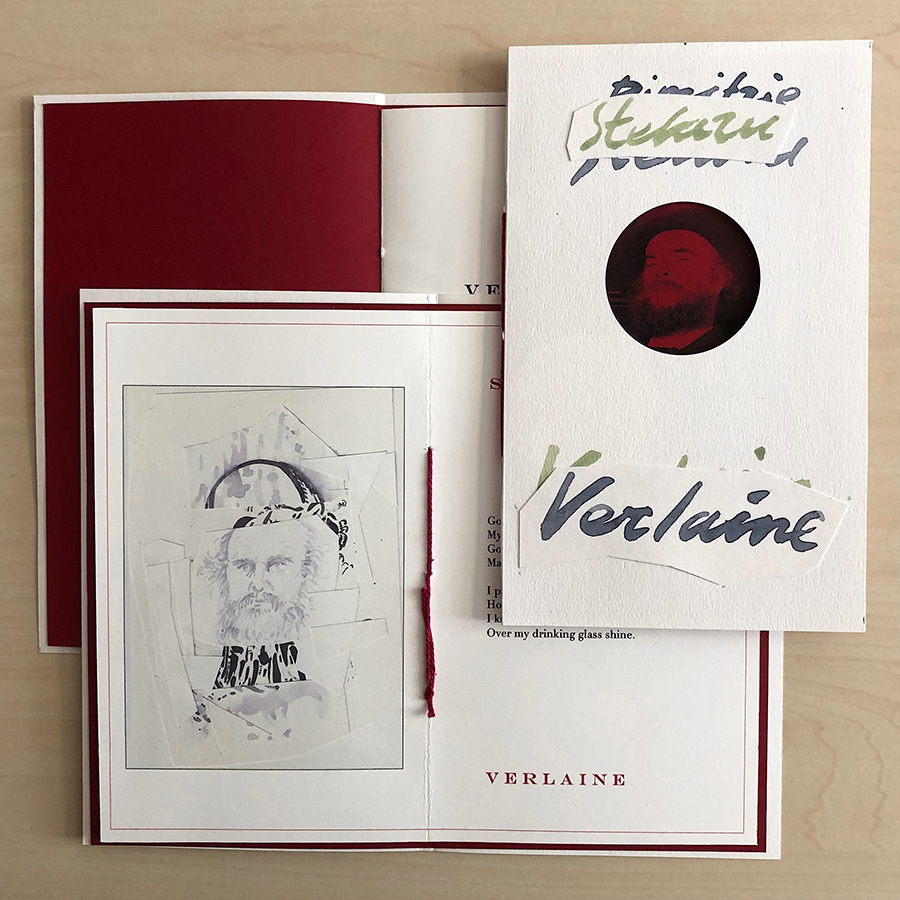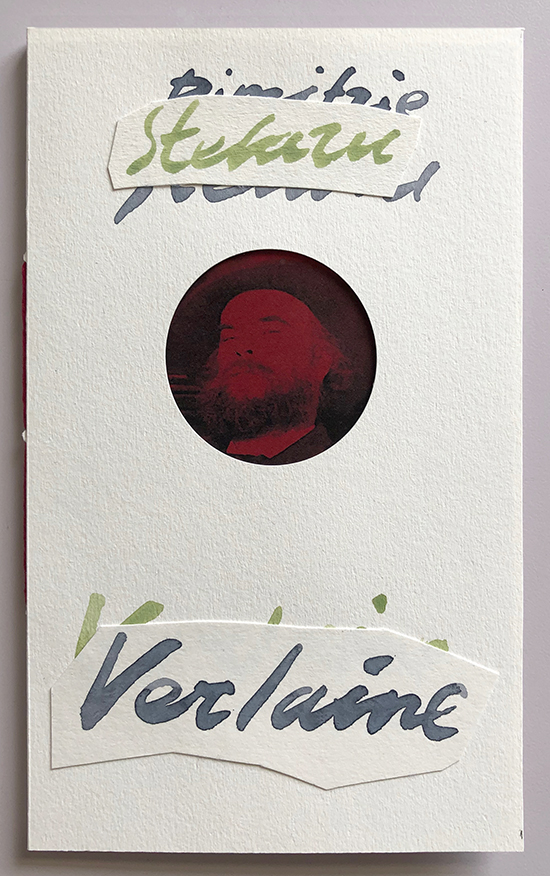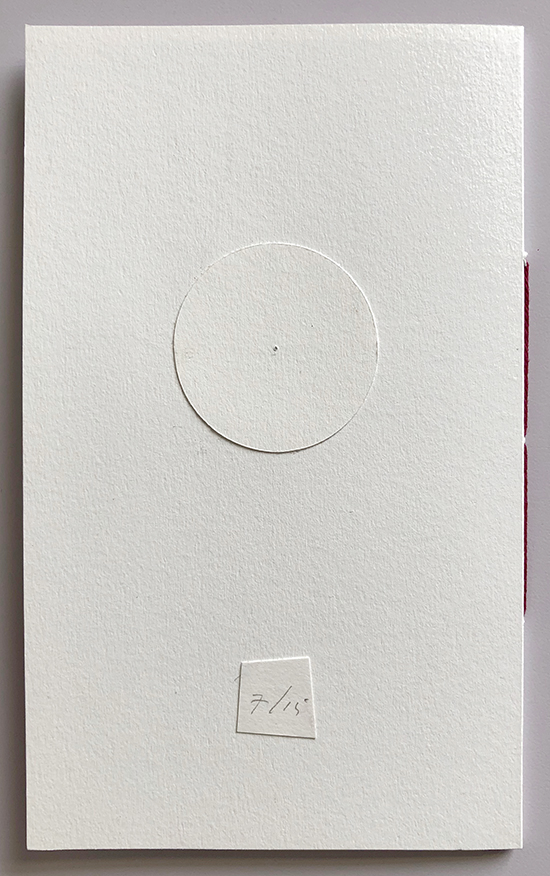
Poet: Dimitrie Stelaru
Publisher: Sea Urchin, Rotterdam
Year: 2023
Size: 180 x 111 x 3 mm
Pages: 4 pamphlet stitched pages
Language: English
Translation, artwork & design: Ben Schot
Hand made edition of 15
 Vagabond poet Dimitrie Stelaru was born in 1917 as Dumitru Petrescu in Romania’s border region with Bulgaria. He never knew his biological father, who was killed in action during World War I, and developed such a bad relationship with his stepfather that he was sent to a strict Christian boarding school in Transylvania at the age of fourteen. Stelaru escaped the institute’s austere regime a couple of years later and vanished in the fringe of Bucharest’s society. There he did odd jobs, lived in sordid conditions and published his first volume of poetry in 1935 under the pseudonym D. Orfanul. Several years later he adopted the penname Stelaru and befriended the poets Constant Tonegaru, Geo Dumitrescu and Ion Caraion, who hung out in the cafés of Bucharest’s Gara de Nord district. The works of this bohemian and escapist literary circle, which would become known as Romania’s lost generation, can be considered to be a continuation of the long line of Romanian Francophile symbolists. Stelaru retraced this line to its origins and took direct inspiration from Paul Verlaine, Charles Baudelaire and the latter’s translations of Edgar Allan Poe. Stelaru’s poems were for the greater part published in Dumitrescu’s literary magazine Albatros, until it was shut down by Ion Antonescu’s fascist regime in 1942. After World War II Stelaru suffered the fate of many poets of his generation and was, until his death in 1971, as violently repressed by the communist regime as he had been by the fascists during the war.
Vagabond poet Dimitrie Stelaru was born in 1917 as Dumitru Petrescu in Romania’s border region with Bulgaria. He never knew his biological father, who was killed in action during World War I, and developed such a bad relationship with his stepfather that he was sent to a strict Christian boarding school in Transylvania at the age of fourteen. Stelaru escaped the institute’s austere regime a couple of years later and vanished in the fringe of Bucharest’s society. There he did odd jobs, lived in sordid conditions and published his first volume of poetry in 1935 under the pseudonym D. Orfanul. Several years later he adopted the penname Stelaru and befriended the poets Constant Tonegaru, Geo Dumitrescu and Ion Caraion, who hung out in the cafés of Bucharest’s Gara de Nord district. The works of this bohemian and escapist literary circle, which would become known as Romania’s lost generation, can be considered to be a continuation of the long line of Romanian Francophile symbolists. Stelaru retraced this line to its origins and took direct inspiration from Paul Verlaine, Charles Baudelaire and the latter’s translations of Edgar Allan Poe. Stelaru’s poems were for the greater part published in Dumitrescu’s literary magazine Albatros, until it was shut down by Ion Antonescu’s fascist regime in 1942. After World War II Stelaru suffered the fate of many poets of his generation and was, until his death in 1971, as violently repressed by the communist regime as he had been by the fascists during the war.
Stelaru’s poem Verlaine was first published in România literară in 1940, when the vagabond poet was 23 years old. The short tribute to Stelaru’s “odd god and friend” Verlaine not only addresses the French Decadent and Symbolist poet but also revolves around symbolist styles and themes, such as repeated sounds, cadence of verse and references to intoxicated states of mind, in this case to the use of alcohol, the intake of which was substantial in both Verlaine’s and Stelaru’s case. Verlaine has been translated into English and illustrated by Ben Schot, who published the poem as a limited edition hand made Sea Urchin chapbook. 15 copies only.


